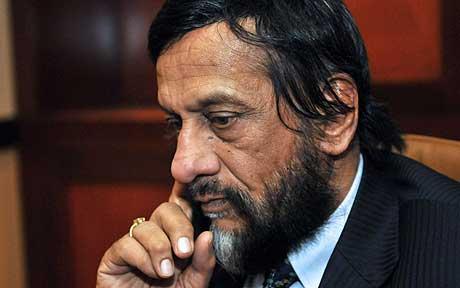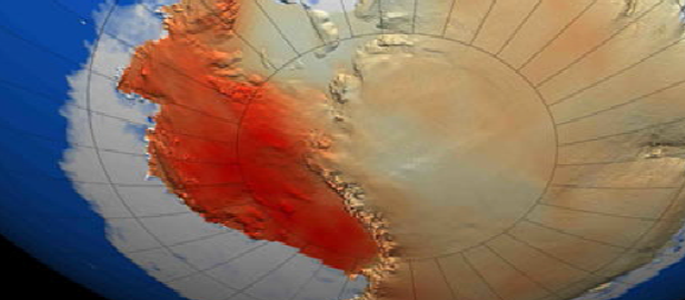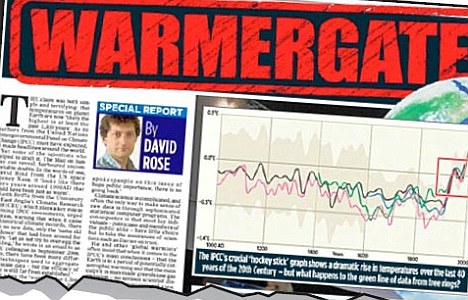See also:

Pride (in The Name Of Love Money)
– Make Bono History (Telegraph):
According to the Post, Bono’s anti-poverty ONE foundation received $14,993,873 in donations from philanthropists in 2008, of which just $184,732 was distributed to three charities. (ONE is an “advocacy organisation” whose main purpose is to change policies, not support charities, it says.) So what happened to the rest? More than $8 million was spent on executive and employee salaries.
This isn’t gossip.
Flashback:
– IPCC Chairman Rajendra Pachauri was told of false Himalayan glacier melting claims before Copenhagen
Dr. Rajendra Pachauri is an elite puppet (= a currupt liar and fraud).
Why did the Charities Commission let the European wing of Rajendra Pachauri’s empire get away with such poor accounting, asks Christopher Booker.

Rajendra Pachauri
Next weekend, as delegates from 194 countries gather in South Korea for a crucial meeting of the UN’s Intergovernmental Panel on Climate Change, their big talking point will be whether the IPCC’s chairman Dr Rajendra Pachauri should resign – as a recent report from the world’s leading scientific academies seemed strongly to hint he should. The delegates face a dilemma. If they sack him, it would be a serious blow to the reputation of the panel, which has been central to the global warming scare since its founding in 1988. If he stays, it could severely damage the authority of its next major report, due in four years’ time.
Last winter, Dr Pachauri’s reputation took a hammering. On the one hand, there was the exposure of all those glaring and alarmist scientific errors in the IPCC’s last major report, produced under his guidance in 2007. On the other was the revelation in this newspaper of how his prestige as the “world’s top climate official” had coincided with a massive expansion in the fortunes of Teri, his Delhi-based research institute. Not only had Pachauri been appointed as an adviser to some of the richest banks and investment funds in the world, but Teri’s empire had mushroomed to include branches in Europe, North America, Dubai, Japan and South-East Asia.
When Dr Richard North and I came to examine this empire, our interest was drawn to Teri Europe, based in a suburban house in south London, which is registered under British law as a charity and is obliged to publish its accounts on the Charity Commission website. When we looked at these, however, they seemed rather odd. The figures showed the charity’s income and expenditure rising steadily in its early years – but from 2006 onwards they suddenly plunged to below £10,000 a year.
This was significant because £10,000 is the threshold below which a charity does not have to publish full accounts. Yet we knew that in these years Teri Europe was rapidly expanding, receiving sums way above that threshold. These included several payments from the UK government, such as £30,000 for the services of an employee of Dr Pachauri’s Delhi office to act as his co-editor on the IPCC’s 2007 Synthesis Report.
When we approached Teri Europe with our evidence, the charity’s secretary immediately admitted that there were “anomalies” in the accounts. The Charity Commission agreed to investigate. Not the least point of interest was that the charity’s trustees – “responsible,” in the commission’s words, “for approving the accounts before submission” – included, alongside Dr Pachauri, two other luminaries of the global warming establishment. Sir John Houghton was a founder of the IPCC, and had long played a key role in it. Sir Crispin Tickell was one of Houghton’s most influential allies back in 1988, as “our man at the UN” and as the adviser who talked Mrs Thatcher into enthusiasm for global warming at that crucial moment (a fervour she later disavowed).
Since it seemed that both Teri Europe and the trustees were in serious breach of the Charity Commission’s rules, this has led over recent months to a protracted series of exchanges with the commission.
First, the names of Houghton and Tickell swiftly disappeared from the list of trustees. Then, in May, after an audit by a firm of accountants, the commission’s website showed dramatically revised figures for one of the three years in question. The charity’s income for 2008 had now risen from £8,000 to £103,980, its expenditure from £3,000 to £97,419. But the figures for the previous two years were unchanged. The commission explained that it had allowed this “to save the charity a considerable amount in accounting fees”. It also claimed that the errors were due to the charity’s “inexperience in preparing accounts”, though the figures for earlier years showed no sign of “inexperience”.
I therefore put 10 searching questions to the commission. Why, for instance, was its website continuing to give false information? Would the commission show equal leniency to other bodies found to have provided misleading accounts, since normally a charity would be severely penalised for such offences?
When eventually I had a lengthy response it didn’t give a direct answer to any of my questions, except to say they were not prepared to disclose the date on which Houghton and Tickell had resigned as trustees. But clearly the commission had been embarrassed by my questions, since over the next few weeks revised figures for two more years appeared online. Income for 2007 rose from £9,000 to £49,878, for 2006 from £7,000 to £16,610 – showing that nearly £150,000 had not previously been disclosed. And, as can be seen from the commission’s website, the accounts are now shown to have been up to “1,246 days overdue”.
Read moreDr Rajendra Pachauri’s charity accounts ‘ANOMALIES’














